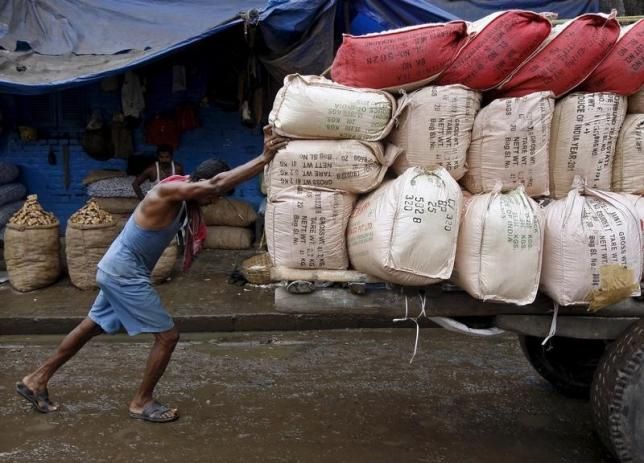Raghuram Rajan said the passage of the GST Bill augurs well for the growing political consensus for economic reforms.
 The Reserve Bank on Tuesday said it will be challenging to roll out GST from April 1, 2017 but the new indirect tax regime will eventually boost business sentiment and investments.
The Reserve Bank on Tuesday said it will be challenging to roll out GST from April 1, 2017 but the new indirect tax regime will eventually boost business sentiment and investments.
Dispelling fears of price rise due to the rollout of Goods and Services Tax, RBI Governor Raghuram Rajan said its impact could be assessed only after the GST rate is decided and inflation could be short-lived as seen in many other countries.
"While timely implementation of GST will be challenging, there is no doubt that it should raise returns to investment across much of the economy, even while strengthening government finances over the medium term," Rajan said in the fourth bi-monthly monetary policy statement.
"This should boost business sentiment and eventually investment," said Rajan after announcing his last monetary policy before he exits on September 4.
He said the passage of the GST Bill augurs well for the growing political consensus for economic reforms.
The Parliament on Monday approved the GST Constitutional Amendment Bill and the government will work hard to meet the April 1, 2017 deadline for rolling out the new indirect tax regime.
Talking to reporters at the customary post monetary policy press conference, Rajan said RBI is currently focused on meeting the inflation glide path target of 5 per cent by March 2017.
"It is premature to talk about inflationary impact of GST when we don't know what the rates would be. The experience of other countries, like Malaysia, has been that the inflationary impact was short lived. We have to see that price adjustment, if there is one, doesn't become generalised inflation," he said.
Rajan said the impact of GST on inflation would depend on the rate as well as exemptions under GST.
"A lot depends on which prices go up, which prices come down, some prices may as well come down. The RBI is currently focused on meeting the glidepath target of 5 per cent by March 2017. We do not visualise GST coming in before 2017," he said.
RBI Deputy Governor Urjit Patel said about 55 per cent of Consumer Price Index basket will not be impacted by GST and since the cascading effect of 'tax-on-tax' disappears, so the effective rate on many goods and services will come down.
"As the base expands, you don't need to have a tax rate as high. Firstly, inflationary impact could be one time.
Secondly, the large part of CPI basket will be outside, and the durable impact on it is likely to be limited," Patel said.
The full effects of GST on inflation will be felt in the second half of next financial year, he added.
The GST will subsume excise, service tax and other local levies and will ensure one common market for seamless transfer of goods and services.
Photograph: Reuters





 © 2025
© 2025